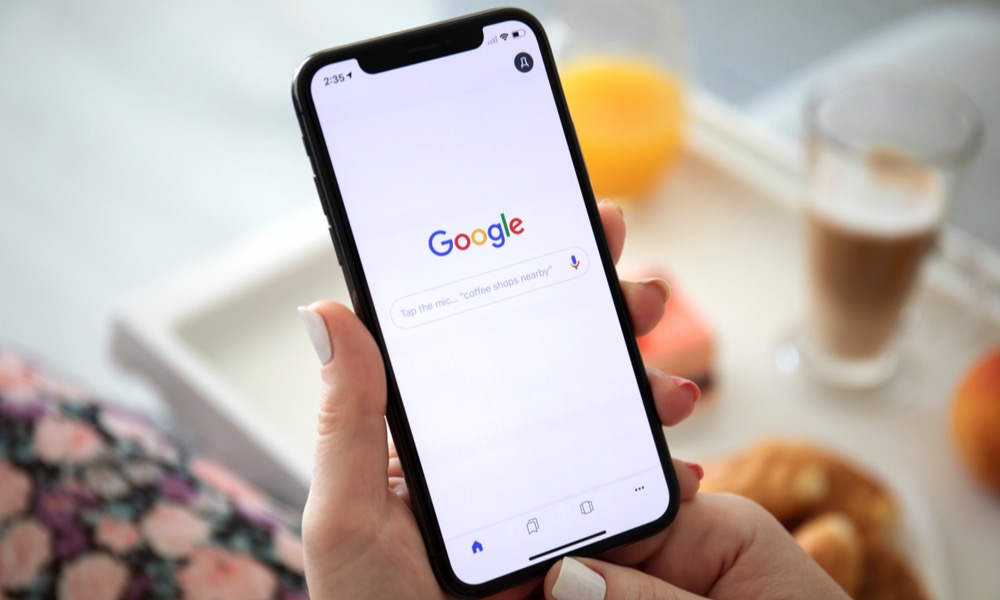No App Updates for iOS: Is Google Avoiding Apple’s New Privacy Labels?
 Credit: DenPhotos / Shutterstock
Credit: DenPhotos / Shutterstock
Toggle Dark Mode
Among big tech companies, it’s well known that Apple has always done much more to focus on user privacy than most, standing in stark contrast to rivals such as Google and Facebook, so it’s easy to understand why some of its policies may not always sit well with those tech giants whose entire bottom line is based on collecting as much data as they can about you.
One such example of this is Apple’s new App Store ‘Privacy Nutrition Labels’ which rolled out last year. Announced at the company’s Worldwide Developers Conference, the change would require developers to disclose exactly how much information they’re collecting on their users, which would be presented on the App Store in an easily understood format akin to the nutritional information labels that are found on food packages.
While the change was announced as part of iOS 14, it didn’t actually roll out on the App Store until December, however Apple was very firm that the new labels would not be optional, and in fact, no new apps or even updates to existing ones would be accepted after December 8, 2020 unless their privacy information had been fully disclosed by the developer.
Most developers were fairly quick to comply, since no label meant no updates to their apps. Even Facebook, which is definitely known for being the antithesis of user privacy, had to comply when it released its mid-December update, resulting in a privacy label that reads like a bad novel — it’s so long it can’t even fit into normal screenshots.
Meanwhile, Facebook-owned WhatsApp riffed on Apple for not offering a corresponding label for its own iMessage platform, so of course, Apple responded by adding them, which simply revealed the absolutely stunning contrast between iMessage and WhatsApp, although the label for Facebook Messenger turned out to be even more egregiously bad. In fact, only the extremely anonymous and privacy-focused Signal fared any better in this comparison.
So it wouldn’t be surprising that Google, which also owes its existence to user data collection, would be hesitant to join this party, and of course as long as the company avoids updating any of its iOS apps, it theoretically never needs to disclose — and be shamed for — how much data it’s actually siphoning from its users.
In fact, as Fast Company points out, it seems to be more than mere coincidence that the last time Google updated any of its iOS apps was on December 7, 2020 — exactly one day before Apple’s strict new requirement for full privacy disclosures went into place.
Needless to say, the timing is suspicious, and while Google doesn’t update every one of its apps that often, considering that the search giant has around 85 different apps on the App Store, it’s extremely unusual that none of them have been updated since that date.
Prior to December 8, however, Google had released a slew of updates for almost all of its most popular apps, including Gmail, Google Maps, Google Home, Google Pay, Google Assistant, Google Photos, Google Chrome, and YouTube, among others.
Coincidence or Not?
Although Google didn’t respond to a request for comment from Fast Company, TechCrunch did get confirmation from a Google spokesperson after digging a bit deeper that the company does plan to add privacy labels across its entire app catalog, which should begin rolling out as soon as this week or next week.
Notably, however, Google didn’t offer any specific reasons for the delay, meaning it’s entirely possible that it’s been trying to delay adding the labels until some of the contentions with tech companies like Facebook dies off, perhaps hoping that by the time it does add them nobody will be paying all that much attention anymore.
However, as TechCrunch notes, it’s also not at all unusual for a company to slow down app updates during the holiday season, as employees take time off, and they go on “code freeze.” In fact, Google typically does this from late December to early January, avoiding making any changes at all to prevent creating bugs and other problems that might be harder to solve while many staff members are away on holidays.
Still, this “code freeze” doesn’t occur until much closer to Christmas Day — well after Apple’s December 8 deadline. It’s also worth keeping in mind that, as Fast Company points out, Google’s corresponding Android apps did in fact get updates after that date, including Gmail on December 16 and YouTube on December 21.
So as with most things, the truth is probably somewhere in the middle. Certainly, Google has likely been in no hurry to add these privacy labels, and TechCrunch notes that “they’re being taken quite seriously,” with Google execs having meetings specifically to discuss exactly how to deal with them properly. So the delay may not be avoidance or even PR spin, but merely trying to ensure that the labels are as accurate as possible and don’t needlessly scare people away.






